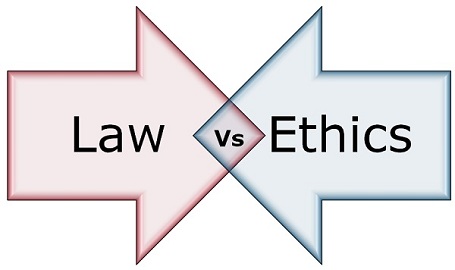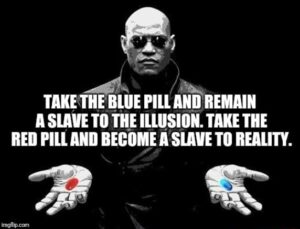Ethical and legal do not always correspond and are therefore not the same…let’s see a few subtle and interesting ways in which corporations trick the system
Yes, we all are involved in this game. Gaming the system is crossing the line of moral code without directly breaking the rules, or say, working the rules of the system for one’s own advantage at the expense of others. We, humans, have a natural inclination to bend the rules to our advantage; each one of us including entities such as nations, governments, business enterprises, political parties, and investors indulge in this unethical practice. Here are a few examples of such legitimate but questionable practices (The Dirty Tricks) from the business world:
1. E-commerce majors Flipkart and Amazon operate an inventory-led model under the garb of the marketplace model to circumvent the FDI regulations. They also indulge in deep discounts and cash backs through related parties thereby destroying the fragile retail ecosystem of India. Even after the issuance of Press Note 2/2018 by the DIPP—since renamed as DPIIT—which became applicable from 1st February 2019, there’s not much change in the ground realities and the practice of gaming the system continues. The exercise to find new ways to fix the system is going on at a frantic pace.
2. The Duopoly of Facebook and Google are also involved in gaming the system and harming the journalism industry by abusing their dominant position as Ad Networks. This is making the business of digital ads unprofitable for both the advertisers (get grossly overcharged) and publishers (monetization of content is difficult as the revenue shared is too low). All this has the potential to kill quality content creation and indirectly encourage the publication of cheap/fake media.
Also, instead of facing competition, these tech giants either swallow their rivals (Facebook buying out WhatsApp and Instagram and now planning to merge all three services so that in future spin-off becomes impossible) or throttle it (Google using its search engine to promote its own specialized search services at the expense of its rivals). These anticompetitive practices hurt innovation and the ability for any other digital player to gain a foothold. Despite antitrust penalties against Google by the European Commission and by the Competition Commission of India for abusing its dominance in online web search and online search advertising markets, there’s not much change in the ground realities.
3. Movie Theatres and Multiplexes sell junk food items at insanely high prices whereby people pay more for food & beverage than a movie ticket. The trick is not to allow outside food (including water) inside theatres and force movie-goers to buy high-priced beverages and eatables from their cafeteria. And that’s why more than one-fourth revenue of listed multiplex companies like PVR Cinemas and INOX Leisure Ltd comes from F&B.
4. Mutual funds declare dividends to create a positive market perception—a marketing ploy— although it does not result in any net gain to the investors. As part of the sales strategy, debt funds used terminology like “Credit Opportunities Fund” or “High Yield Fund” for credit risk funds that invest in lower-rated securities to generate high returns. Also, Large-cap mutual funds generated alpha by taking exposure to mid and small-cap stocks. Then there was the practice of frequent churning of client portfolios by mutual fund distributors/agents so as to earn a higher commission. Now with the SEBI ban on upfront commission and norms on categorization and rationalization of mutual fund schemes, these malpractices are expected to be curbed significantly.
5. Merchant bankers often over-price and over-hype IPOs to benefit promoters & VC firms (pre-IPO shareholders) more than the retail investors. That’s why IPOs usually don’t come in a bear market. The aggressive pricing is one of the reasons why the market price of the majority of IPOs floated during 2018 is ruling below their issue price.
Ethics is knowing the difference between what you have a right to do and what is right to do._Potter Stewart
6. Credit Card companies trap consumers into a debt cycle by enticing them to over-spend to earn reward points and discounts. Subsequently, an offer is made to revolve the credit with a high rate of interest which ultimately culminates into a debt crisis.
7. Brokers indulge in front-running of stocks. They place a proprietary order before executing a large client order that is expected to influence the price of the underlying security. And thus they earn a profit at the client’s expense.
8. Banks usually don’t do a commensurate reduction in base rate / MCLR with the lowering of repo rate by RBI. It defeats the very purpose of monetary transmission from the policy rate to banks’ lending rates rendering it an ineffective tool of monetary policy. Now with the introduction of an external benchmark, the situation is expected to improve from April 1, 2019. SBI has already taken the lead.
And then there’s the established practice of evergreening of loans to avoid classifying them as NPAs. The purpose is to escape provisioning and display inflated profits. In the past restructuring was undertaken by banks mainly to avoid a downgrade rather than resolve an asset. However, after the RBI February 12, 2018, circular, this has become a tad more difficult.
But the list does not end here. PSU Banks often indulge in riskier lending practices due to not having enough skin in the game. This is the genesis of the NPA crisis (The Great Indian Bank Robbery). Even the Insolvency and Bankruptcy Code (IBC) cannot solve this problem of not following prudent risk management practices.
And finally, there is the oft-overlooked yet omnipresent practice of banks mis-selling insurance and other financial products to retail customers.
9. Real estate companies fool buyers by selling / leasing properties (both residential and commercial) based upon a super built-up area instead of the carpet area. This widespread practice has since been banned by the Real Estate Regulation and Development Act (RERA) to bring in transparency in the real estate market.
10. Organized retailers dupe gullible customers by charging tax extra on discounted merchandise.
11. Digital marketers attempt to outsmart search engines and boost a site’s search ranking by the use of keyword stuffing, link spamming, and other black-hat SEO methods. They also buy fake followers & likes on social media to build a strong social media presence as part of their digital marketing strategy.
12. Advertisement industry misuses its creativity to manipulate people into buying things they don’t need. Product ads make misleading and outrageous claims and exploit our deepest fears & insecurities; for example, beauty product ads that claim to make women prettier & fairer; health drink brands claiming to make children stronger, taller, and intelligent. To catch consumers’ attention, brands use ubiquitous marketing tools of sex appeal in advertisements through the objectification of women. Companies also use fine print in ads with an intent to deceive the unsuspecting consumer into believing the offer is more advantageous than it really is. Above all, corporations exploit cause marketing to sell their wares. The purpose is more to gain a competitive advantage than to make a social impact. The practice of gaming the system and fooling the masses of consumers has been going on for several decades in the name of marketing.
13. Corporations deploy creative accounting while playing the game of financial numbers. The widespread practice of gaming the system is about dubious accounting practices that follow the letter of the rules but deviate from the spirit. It involves manipulating assets and earnings numbers to mislead stakeholders about the true economic performance of the business. Who says that creativity is restricted to just clever marketing campaigns?
14. Multi-level marketing (MLM) firms exploit the trust the seller has with friends and families to peddle their products. The business model of network marketing—doomed by design—is like a typical pyramid scheme; the early entrants make a lot of money while later recruits are often the losers.
15. Pharma Companies abuse patent laws through evergreening. It is done by patenting new drugs after making slight changes in the existing drugs without any enhancement in their therapeutic efficacy. The purpose is to extend their monopolies and delay the entry of generics. Also, as an integral part of marketing, the pharmaceutical industry tries to influence physicians through gifts to increase the sales of company products.
16. Private Hospitals usually bill the insured customers way above non-insured customers. The bag of dirty tricks also includes giving revenue targets to doctors, ordering unnecessary/fake tests, prescribing expensive medicines when cheaper substitutes are available, deliberately delaying patients’ discharge, conducting fake operations, conducting c-section even when normal delivery will do, and so on. And very soon, we will also see the introduction of Patient Loyalty Programs.
I believe in capitalism. I need to make a profit, but I would like to do it with ethics, dignity, morals. It’s my dream. _Brunello Cucinelli
17. Social media companies monetize our personal data by compromising privacy while we think social media is free.
18. Promoters make a mockery of corporate governance by appointing their friends and relatives as independent directors which creates an inherent ‘conflict of interest’.
19. Multinational Corporations, exploit legal loopholes in the current international tax system which is based on inter-state tax competition rather than co-operation. MNCs, particularly the US and European MNCs, engage in tax avoidance through profit shifting. This is done by relocating patents and trademarks (IP migration) to which their profits are attributed to tax-havens (country’s with a very low effective rate of taxation such as Ireland, Bermuda, Cayman Islands, and the British Virgin Islands). This is what tech Co’s such as Google, Microsoft, and Apple have been doing to save taxes. And governments failure to curb this global practice—artificially shifting of profits whereby man and machines don’t move, only paper/accounting profits move—is one of the main reasons for falling tax rates globally.
Tax avoidance strategies also include distorting transfer pricing to shift profit to low tax jurisdictions. It is done via inter-firm transactions between parent and its subsidiaries in various countries including India. Now with the introduction of the BEPS framework (to ensure that profits are taxed where economic activities are generated) CbC (Country-by-Country) reporting has been made mandatory making it easier for income tax authorities to go after shell companies created for tax arbitrage purpose.
20. Foreign investors (both portfolio and direct) indulge in ‘tax treaty abuse’ by routing their investments in India through the Mauritius route and other offshore tax havens like Singapore, Netherland, and Cyprus. This is apart from round-tripping of funds where domestic funds come back into India as FDI money. Now with the introduction of the LOB (Limitation of Benefit) clause in DTAAs (the one with Mauritius was amended in 2016), treaty shopping will become difficult.
21. Indian subsidiaries of multinationals companies pay hefty royalties to their overseas parent firms. These payouts which shot through the roof after the abolishment of royalty caps in December 2009 adversely affect the minority shareholders.
22. Blue-chip companies used to distribute dividends without paying even a dime of tax on profits. This was a reality before the introduction of minimum alternate tax (MAT) in 1987. It was on account of misaligned tax incentives relating to investments and resulted in Zero tax companies gaining undue economic advantage over small companies.
23. Unlisted firms route unaccounted money into books via shell companies by camouflaging it as legitimate share premium transactions. The introduction of section 56(2)(viib) in the Income Tax Act, popularly known as Angel Tax, was to curb this money laundering practice of closely held companies.
24. Restaurants and hotels continue to enrich themselves by adding ‘service charge’ automatically to the bill without customers’ consent. This is despite consumer court ruling and a directive by the consumers affairs ministry that service charge is voluntary and the customer is not bound to pay it if didn’t like the service. Further, though it is levied in lieu of tips, many restaurants do not pass it fully to their employees.
25. Food and beverage companies play with human health by marketing sugary drinks and other unhealthy food products. You can’t sell narcotics but you can freely market sugary drinks just because governments the world over think that while narcotics are bad, sugary drinks are not. Supersizing makes it even worse.
The food industry is gradually dictating our eating habits by replacing real food with junk food laden with sugar, salt, fat, antibiotics, and pesticides. FSSAI has proposed color-coded labeling for products (Red labels on packaged food high on fat, sugar, or salt) and restricting the marketing of junk food to children but the implementation seems doubtful due to pressure from the powerful processed food industry.
26. Indian carmakers compromise on automotive safety due to India’s minimum regulatory requirements. In India, a safety rating for cars is not mandatory yet. That’s why most cars that fail Global NCAP crash tests—though they meet the regulations set by ARAI— continue to be sold in India. Of late, there’s a slight improvement as few Indian car makers have started upgrading their safety standards with Tata Nexon becoming the first India made car to get 5-Stars at Global NCAP crash tests.
27. Life insurance companies do the business of asset management under the guise of risk management. The lax regulatory environment coupled with misaligned tax incentives (mainly due to the presence of state-run behemoth LIC) has only made it a lot easier for the entire insurance industry to carry-on with this unethical business model.
28. High street fashion brands give us access to cheap fashion by turning a blind eye to labor exploitation: meager wages that barely cover basic necessities, long working hours, unsafe factories, human rights violations, and other abuses in the garment industry. The 2013 Rana Plaza factory collapse—the mass industrial homicide—that killed over 1,100 workers in Dhaka, Bangladesh highlighted the dangers in today’s “fast fashion” supply chain.
Leaving aside irresponsible sourcing, what is the environmental cost of “fast fashion”? The naked truth is that textile manufacturing is one of the most polluting industries in the world. How many people know that buying high fashion clothes, wearing them less, and throwing them away sooner is responsible for the ever-increasing carbon emissions of the clothing industry? The takeaway is that the business model of “fast fashion” is not sustainable. But who cares about the planet anyway? It is a topic meant only for discussion at climate talks.
28. Finally, Big Business engages lobbying firms to influence the government and the regulators so as to game the system and rig the rules in their favor.
To sum up, the list of unethical business practices for gaming the system is virtually unending. However, everything in life has two sides, and capitalism—or better call it corporate fascism— is not an exception. After all, even the moon has a dark side to it. And before I end, here’s a quote by Dr. B.R. Ambedkar
“History shows that where ethics and economics come in conflict, victory is always with economics. Vested interests have never been known to have willingly divested themselves unless there was sufficient force to compel them.”





